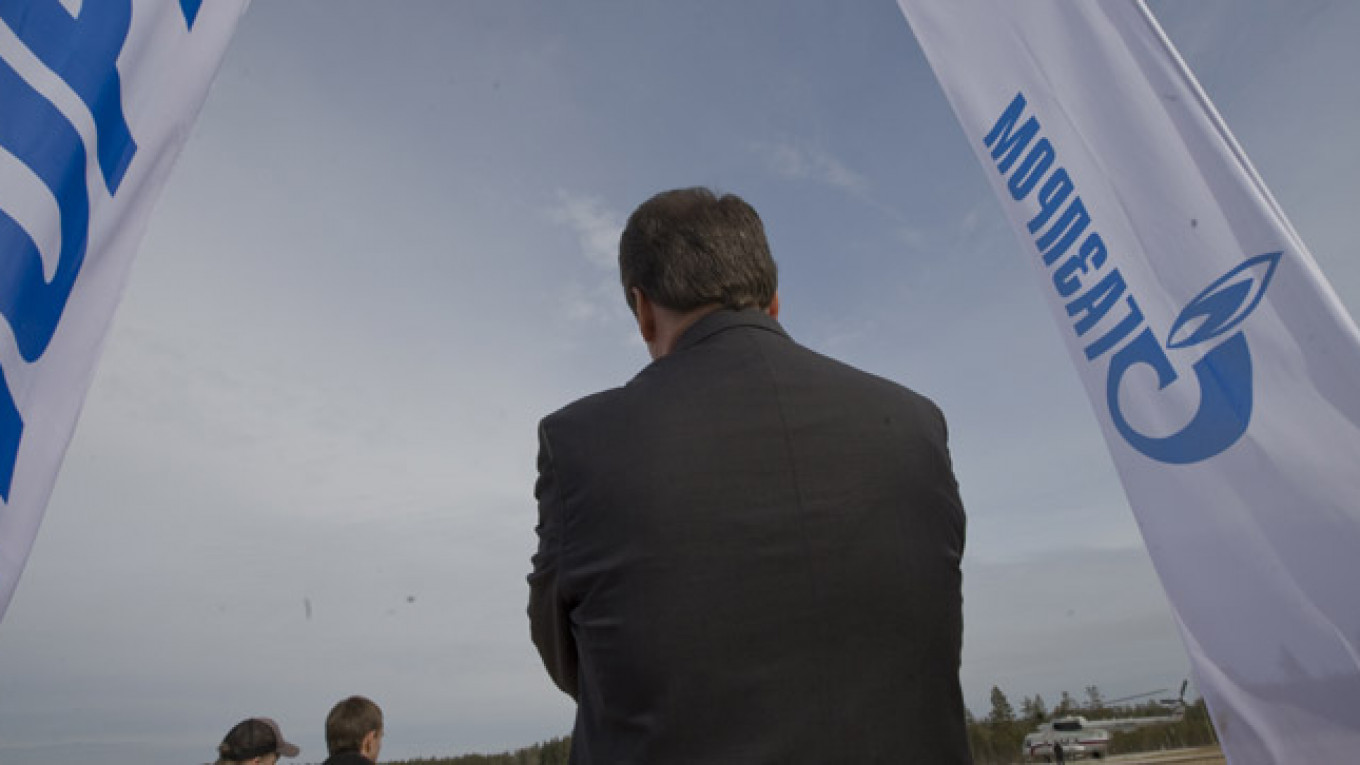Critics immediately attacked the contract President Vladimir Putin signed with Chinese leaders obligating Russia to provide long-term gas supplies and to build a massive pipeline to China.
Economists pointed out that the selling price for the gas is too low, the pipeline construction will almost certainly go over budget and the tax break that the government granted on the gas to sweeten the deal for Gazprom will deprive state coffers of most of the potential income from the deal.
Despite the huge total figures involved, Russia will actually supply China with only about a quarter the amount of gas it currently ships to Europe per year. What is more, former Deputy Energy Minister Vladimir Milov correctly pointed out that China might actually have a much lower demand for natural gas than many optimists anticipate.
Although there are many negative aspects to the deal, it is not all bad news. By locking China into a 30-year contract, Russia hopes to guarantee that expensive pipeline construction necessary to link the two countries will be paid for.
While it is important to debate the relative advantages or disadvantages of a 30-year contract — and ideally with absolute transparency — international agreements are not the most important factor in modern economies.
What is more important are the steps Russia will take to make the deal profitable. This is because the best insurance against falling gas prices or declining Chinese interest is to reduce the costs of producing and transporting the gas. That, and not the terms of the contract, will determine the relative positions of both sides several years from now.
If Russia can manage to increase efficiency, it will enjoy a stronger position. If is not able to increase efficiency, it will have weaker position. Moreover, although nobody knows what Gazprom's competitors will be doing on the world market in the coming decades, one thing is certain. They will not be sleeping. And if Russia builds this pipeline at the same inflated prices it has paid for other megaprojects in recent years, it will doom the deal to unprofitability.
It is a simple idea that no contract, however favorable it might look on paper, will prove profitable unless Russia reduces the corruption that causes domestic construction costs to soar beyond world standards. But unfortunately, reiterating that point does not bring us a single step closer to achieving the necessary increase in efficiency.
Konstantin Sonin, a columnist for Vedomosti, is professor of economics and vice rector at the Higher School of Economics in Moscow. This comment appeared in Vedomosti.
A Message from The Moscow Times:
Dear readers,
We are facing unprecedented challenges. Russia's Prosecutor General's Office has designated The Moscow Times as an "undesirable" organization, criminalizing our work and putting our staff at risk of prosecution. This follows our earlier unjust labeling as a "foreign agent."
These actions are direct attempts to silence independent journalism in Russia. The authorities claim our work "discredits the decisions of the Russian leadership." We see things differently: we strive to provide accurate, unbiased reporting on Russia.
We, the journalists of The Moscow Times, refuse to be silenced. But to continue our work, we need your help.
Your support, no matter how small, makes a world of difference. If you can, please support us monthly starting from just $2. It's quick to set up, and every contribution makes a significant impact.
By supporting The Moscow Times, you're defending open, independent journalism in the face of repression. Thank you for standing with us.
Remind me later.






